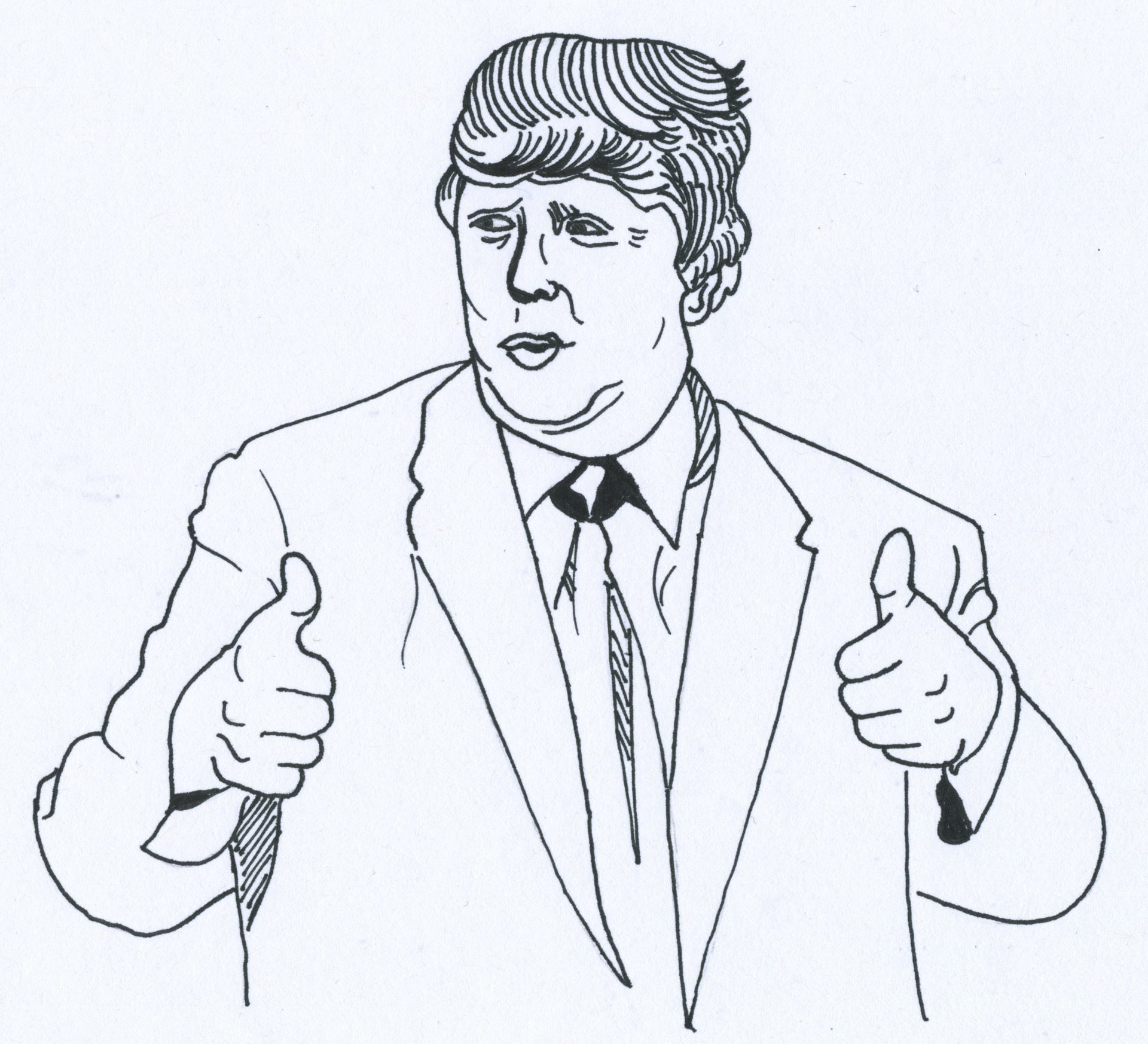
The 2016 presidential election could be considered rigged by some, but not in the way Trump has claimed. At multiple points in the Republican nominee’s campaign, the candidate has called foul play, asserting that many factors are conspiring against him. Based off different claims throughout Trump’s campaign, these include, but are not limited to: Secretary Clinton’s campaign, the media, specifically calling Alec Baldwin’s SNL portrayal of him a “hit job,” the multitude of women accusing him of sexual assault and voter fraud. However, there is no empirical support for significant voter fraud in the U.S. In a study by the Washington Post, from 2000 to 2014 only 31 cases of credible voter fraud were found from the approximately 1 billion ballots during that time frame.
Trump even suggested that Secretary Clinton may be taking performance-enhancing drugs to gain an unfair advantage.
“I think we should take a drug test prior to the debate,” Trump said at the October 19th debate. “Because I don’t know what’s going on with her. But at the beginning of her last debate, she was all pumped up at the beginning, and at the end … She could barely reach her car.”
While Trump’s list is long, he has yet to mention any of the many state-imposed voter restrictions that have historically skewed, or “rigged,” election results. In July, an appellate court struck down what would have been “one of the largest restrictions of the franchise in modern North Carolina history,” according to the court. The laws called for new photo identification requirements, stopped voting for people out-of-precinct and ended voter registration on Election Day, as well as early voting, moves that the court referred to as “[targeting] African-Americans with almost surgical precision.” As these voting methods are often utilized by black voters, the laws were deemed disproportionately discriminatory.
Thanks to the appellate court, early voting in North Carolina was able to start on Oct. 20. However, many counties in North Carolina significantly cut back access to early voting by decreasing the times and locations available.
Gillian Franks ’19, a North Carolina native, felt that the cutbacks were disproportionate and unfair.
“North Carolina is making a huge mistake by cutting down on early voting and eliminating straight ticket voting,” Franks said. “[The state] is effectively changing the outcome of its elections by targeting the population that primarily uses early voting hours, namely African-Americans and the middle class. It is undemocratic and unfair to those that rely on these voting hours.”
17 counties in North Carolina implemented fewer total early-voting hours than in the 2012 election. In Guilford County, early-voting locations were reduced from 16 in 2012 to one for this election, reducing early-voter turnout by 85 percent as presented by the United States Election Project. According to the American Civil Liberties Union, similar voter restrictions are impacting residents in 15 other states.
For Thea Crowley ’20, an Ohio native, absentee ballot restrictions are especially worrisome.
“Many of my friends who went out of state for college are experiencing stringent cutbacks on their ability to vote absentee.” Crowley said. “Some are unable to vote in their home state at all and have to vote in the state where they attend school.”
Crowley’s fears may resonate particularly strongly for out-of-state students from Michigan. Earlier this year, Michigan implemented restrictions on absentee voting that required first year voters, many of whom may be out-of-state for college, to vote in-person.
Though deadlines for voter registration have already passed in many states, Leah Francis ’19 suggested tips for students who are looking to stay informed for the future.
“In California, my home state, it wasn’t too difficult to vote absentee,” Francis said. “However, I know that many of my friends from other states were able to register in Oregon through the Student Activities Office. They had a table outside The Bon a few weeks ago and you just had to fill out a form and provide a valid driver’s license.”
Subscribe to the Mossy Log Newsletter
Stay up to date with the goings-on at Lewis & Clark! Get the top stories or your favorite section delivered to your inbox whenever we release a new issue.

Leave a Reply